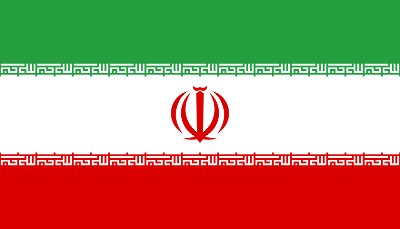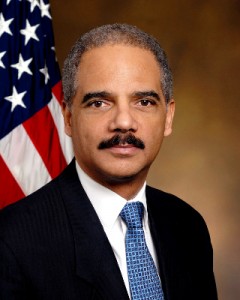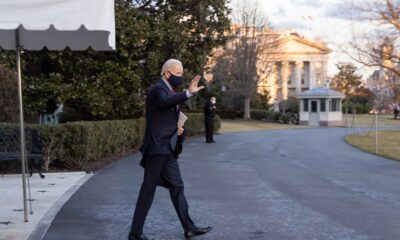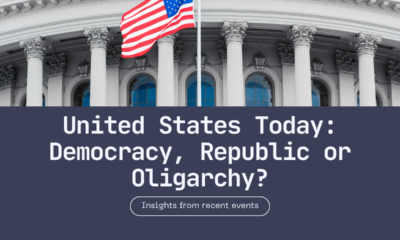Executive
Iran terror plot – who benefits?

The Iran terror plot story comes at an oddly convenient time for some, and raises another question: who benefits from the act, or the news?
The Iran terror plot allegation
The story comes from Attorney General Eric Holder and FBI Director Robert Mueller. It reads like something out of the late Bruce Geller’s television series, Mission: Impossible. Manssor Arbabsiar, a naturalized Iranian-American, and Gholam Shakarian, an Iranian operative, are the keys. As the story goes, they sought to murder Adel al-Jubeir, Ambassador of Saudi Arabia to the United States. The plan was to blow up his favorite Mexican restaurant near Embassy Row while he was having dinner there. The two also wanted to blow up the Saudi and Israeli embassy buildings. Never once did they stop to consider whom else their bombs might kill in the process.
Arbabsiar tried to contact a Mexican drug cartel operative last spring. In fact, he met with a paid informant of the Drug Enforcement Administration. This informant demanded $1.5 million US for the deed, to pay four operatives, smuggle them into the United States, supply them, etc. In August of this year, Arbabsiar actually paid $100,000 as a down payment.
And so, on September 29, 2011, the FBI arrested Arbabsiar. On October 5, Arbabsiar, on orders from the FBI, called Shakarian, with the FBI listening in. Shakarian gave Arbabsiar a “go” for the mission.
Shakarian lammed it back to Iran. Arbabsiar faces charges of conspiracy to commit murder and conspiracy to commit an act of international terrorism.
Iran terror plot reaction
Reaction to the Iran terror plot story has been “fast and furious.” The Associated Press reports that the State Department issued a terror alert to all Americans traveling or living abroad. The Royal Embassy of Saudi Arabia denounced the plot as “a despicable violation of international norms.” The Wall Street Journal called the Iran terror plot “a sobering wake-up call,” especially to “isolationist[s].” At the Fox News Channel, many politicians accused Iran of “an act of war.” They called for sanctions—or worse.
The Iranians deny everything.
Iran terror plot – the evidence
The best evidence that the Iran terror plot is real is that the government has a suspect in custody. Tea Party activist Nick Purpura, reached for comment, threw cold water on the notion that the US government “faked” the plot:
If this were a fake, they wouldn’t have taken [Arbabsiar] alive. They’d have killed him outright, and then said absolutely that he did it.
CNAV asked him about the $100,000 in wire transfers. Purpura said that that evidence was somewhat weaker. “There are too many ways to make that look like something it wasn’t,” said the activist, who once was a managing director at Bear Stearns.
But Purpura expressed outrage over the implications. “We know that [US-Mexican] border is porous,” he said. “It’s a threat to national security!” He called for stationing troops to guard the border, and rejected the argument that such deployment would violate the Posse Comitatus Act.
This isn’t civilian law enforcement. This is protecting against foreign infiltration. The next time, the operatives could really get through.
Iran terror plot – the skeptics
Still, skeptics are already questioning whether the Iran terror plot is real. Max Fisher, writing at The Atlantic, makes an argument from incredulity: what could Iran possibly hope to gain from such a crazy mission? The exposure of the mission will make King Abdullah more likely, not less, to cooperate with the Americans. And why would they offer to pay a million and a half dollars to get this done? (For perspective, Iran got a million dollars in ransom for three hikers who may, or may not, have violated its border.)
Fellow Atlantic writer Steve Clemons is not so sure about the US-Saudi relationship. He sees an Iran feeling cocky, while the USA is displaying weakness. Then, too, Iran and Saudi Arabia have been bitter rivals for decades. (The rivalry actually goes clear back to the formation of Shi’ite tradition, and the murder of the Eleventh Imam.)
Judge Andrew Napolitano asked a more pertinent question yesterday afternoon, when the story broke. Why did the Attorney General release that information yesterday, on the very day that he faced a subpoena? Representative Darrell Issa (R-CA), head of the House Oversight Committee, had threatened exactly that. (Today, Issa carried out that threat.) Furthermore, the Iran terror plot involves the very thing that embarrasses Holder the most: Mexican drug cartels. The latest pertinent date in the Department of Justice press release is October 5, 2011—exactly seven days ago today.
Persons inclined to be skeptical of any criminal case that depends on paid informants have wondered whether any such plot would have taken form, if not for the man called “CS-1” in the press release. That would not explain the telephone conversation between Arbabsiar and Shakarian, if it took place as the release describes. And by holding Arbabsiar alive for trial, the government risks having to rebut the common charge of entrapment. Some legal activists, including Judge Napolitano, have argued that any case becomes entrapment when a paid informant suggests a criminal act to a suspect. In this case, “CS-1” demanded payment—and Arbabsiar allegedly made at least a partial payment.
Conclusion
Iran’s president, and its clerical leader, are each crazy enough to have ordered a plot of this kind. Nor are their denials credible. As Bruce Geller would no doubt point out, this is called “disavow[ing] any knowledge of [their operatives’] actions.” (No doubt Mr. Shakarian’s operational orders ended thus: “This message will self-erase in five seconds.”)
But the federal government benefits much more from the news of the Iran terror plot than the Iranians do. In fact, the Iranians are embarrassed; hence their denial. A plot like this, especially one that fails, is not exactly the sort of thing whereof a nation-state can boast.
Someone else did boast yesterday: Eric Holder. At least for one day, he now looks like a hero. Does he hope to have Darrell Issa stop investigating him? (Issa evidently refuses to do that.) And why, as Judge Napolitano asked, did Holder sit on this information for six calendar days? Would he have released it at all, if Issa had not made his threat? Might he have released it today, if Issa had simply sent the subpoena without threatening him in advance?
And: what is Holder going to do about it? Or what is Janet Napolitano (no relation to the Judge), as Secretary of Homeland Security, going to do about it? Will either official, or any official, move to seal the porous southern border? The Wall Street Journal is ambivalent, at best, about that: they want that border open to any cheap laborer who will pick apples, oranges, or lettuce every fall. The administration wants extra voters. Given that, they probably would have just as soon not released this information at all, did they not need to relieve Holder of some embarrassment.
Terry A. Hurlbut has been a student of politics, philosophy, and science for more than 35 years. He is a graduate of Yale College and has served as a physician-level laboratory administrator in a 250-bed community hospital. He also is a serious student of the Bible, is conversant in its two primary original languages, and has followed the creation-science movement closely since 1993.
-

 Executive4 days ago
Executive4 days agoSecret Service chief gets no solace
-

 Executive3 days ago
Executive3 days agoWaste of the Day: Louisville Taxpayers Pay Nearly $600,000 For Empty Building’s Maintenance, Security
-

 Guest Columns4 days ago
Guest Columns4 days agoFear Itself: Democrats’ Favorite Strategy Caused Their Current Chaos
-

 Executive3 days ago
Executive3 days agoWhere is Joe Biden – or Jill?
-

 Executive1 day ago
Executive1 day agoWaste of the Day: Throwback Thursday: Cities Used Crime Prevention Funds on Soccer Games, Paper Shredding
-

 Executive2 days ago
Executive2 days agoFacile and politically motivated suggestions
-

 Civilization4 days ago
Civilization4 days agoBuild Iron Dome in the United States To Prepare for Israel’s Worst Day
-

 Executive4 days ago
Executive4 days agoThe Emerging GOP Plan To Beat Kamala Harris
















[…] Holder knew that this was coming. That’s why he chose yesterday to release information about the Iran terror plot. Some activists still insist that this plot is either a false-flag […]